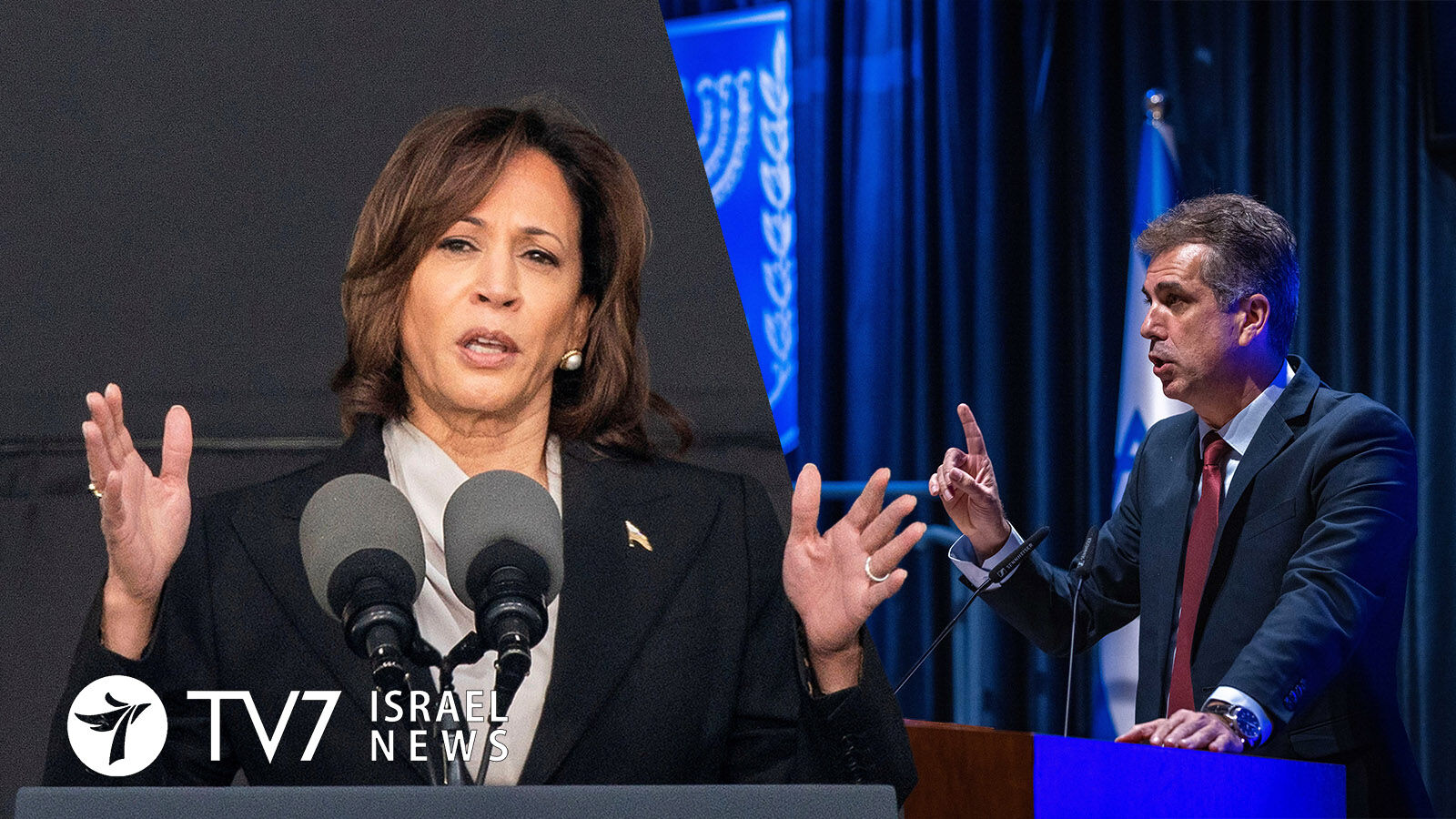Jerusalem objects after United States Vice President Kamala Harris commented on Israeli Prime Minister Benjamin Netanyahu’s contested judicial overhaul plan that has drawn mass protests.
By Erin Viner
“America will continue to stand for the values that have been the bedrock of the US-Israel relationship, which includes continuing to strengthen our democracies, which as the (Israeli) Ambassador has said, are both built on strong institutions, checks and balances, and I’ll add: an independent judiciary,” Harris said.
The Vice President made the remarks during a reception celebrating the 75th anniversary of Israel’s founding hosted by Ambassador Michael (Mike) Herzog at the country’s embassy in Washington. The audience responded to the statements with applause.
Israel has been gripped by unprecedented weekly nationwide demonstrations following the 4 January 2023 announcement that the Netanyahu coalition – which took office only days before on 29 December 2022 – of a sweeping “reform of governance” to limit Supreme Court rulings against government moves or Knesset laws, while increasing politicians’ input over nominations to the bench.
Israel’s right-wing 37th government, an alliance between the Premier’s Likud party with several smaller religious and hard-right nationalist factions, asserts it holds the mandate for changes it deems necessary to curb overreach by activist judges and restore balance between the legislative, executive and judiciary.
The court’s defenders say it plays a vital role in holding the government to account in a country that has no formal constitution, and that the government’s overhaul would weaken the courts, endanger civil liberties and harm the economy. The proposal has drawn fierce condemnation from Opposition Members of Knesset (MKs), legal officials, military reservists and advocacy groups – further broadening already deep political divisions in Israeli society in what has been described as Israel’s worst-ever crisis.
Top economists and national security veterans have warned of fallout, saying an independent court system is crucial to Israel’s democratic norms and economic strength.
Prime Minister Netanyahu, who is himself on trial on corruption charges which he denies, had dismissed the protests as refusal by leftist adversaries to accept the results of the 1 November’s election which resulted in one of the most right-wing governments in Israel’s history. He has ardently defended the judicial overhaul.
Under pressure at home and abroad – including by the administration of US President Joe Biden – Netanyahu suspended suspended the deadline for a Knesset vote on the matter from 15 March to 15 June to allow for compromise negotiations with the political opposition brokered by Israeli President Isaac Herzog.
Israeli Foreign Minister Eli Cohen said Harris was perhaps not fully informed about the details of the judicial changes his government was seeking, which were intended, he said, to ensure a strong and independent judiciary which was more balanced.
“If you ask her what troubles her about the reform, she may not be able to cite even one clause that bothers her,” Cohen told Israel’s public broadcaster Kan. “I don’t know whether she read the bill, my estimation is that she has not.”
Jerusalem’s top diplomat, who is a member of the Prime Minister’s Likud party, said that he also supports “a strong and independent judicial system, but not an omnipotent one.”
Later appearing to walk back his response, Cohen later posted a message in both Hebrew and English on Twitter, reading: “I have deep respect for our ally the United States of America and for Vice President Harris, a true friend of Israel. Israel’s legal reform is an internal issue that is currently in the process of consolidation and dialogue. The State of Israel will continue to be democratic and liberal, as it has always been.”
When asked for comment on the matter by the Ynet news organization, US Ambassador to Israel Tom Nides said, “Vice President Harris is a wonderful friend of Israel and the Jewish people. She said the same thing that I have said myself a hundred times.”
In fact, Harris also underscored the US’ unwavering support of Israel during her embassy speech.
“At the core of the U.S.-Israel relationship is America’s ironclad commitment to the security of Israel. This commitment endures not only because it is in America’s strategic interest, but because it is the right thing to do,” said the Vice President.
Stressing that the Biden-Harris administration believes the creation of “a more integrated and interconnected Middle East” is essential “to promote the security of Israel, the region, and the United States,” America’s second in command explained, “That is why we will continue to build on Israel’s peace treaties with Egypt and Jordan, and on Israel’s historic agreements with the UAE, Bahrain and Morocco.”
Turning to the Israel-Palestinian conflict, Harris reiterated US support for a Two-State Solution. It is important to note that while Washington continues to promote the internationally backed plan, there is no apparent political will in either Jerusalem or Ramallah to initiate renewed dialogue. US-brokered peace talks broke down in 2014.
